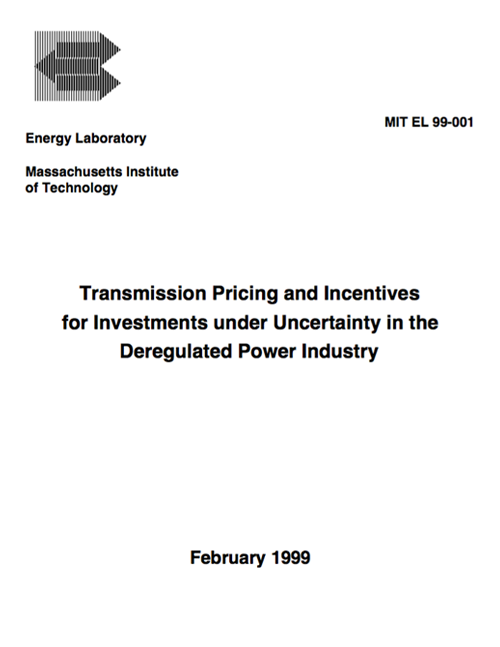The deregulation of the power industry intro during competition among generators raises technical as well as economic issues related to the use and the enhancement of the transmission grid. This thesis provides an analysis of such issues.
Building on the existing literature, this thesis expands the notion of optimal investment in transmission capacity by considering the timing and rate of investment decisions and by relating it further to the notion of optimal generation mix. We generalize these two concepts of optimal investment to account for uncertainties. The recognition of risks in future power demand is shown to diminish the optimal investment in capital intensive generation technologies. This conclusion applies even more strikingly to the existing transmission technologies calling for the introduction of more flexible transmission technologies. Transmission business remains an important part of the power industry and the design of an incentive structure for investments together with a consistent pricing scheme are strongly advocated.
This thesis introduces two alternative pricing schemes which acknowledge the existence of uncertainty in future use of the system and at the same time recognize the need for coordination of the generation and transmission investment policies. The first scheme is based on the existence of longterm derivative contracts for transmission capacity. The second scheme relaxes the commonly made assumption of perfect market conditions and grants a co ordinating role to a transmission provider. The latter dynamically allocates on a longterm basis non-rm transmission capacity manages in realtime the use of the grid based on his estimation of the arrival pro cess of requests for transmission capacity. In this dynamic allocation of non-rm transmission capacity a transmission provider uses knowledge of existing transmission contracts to optimally invest in transmission capacity. Finally the existence of a non-capacity dependent cost of transmission lines is mentioned as the explanation of non-recovery of investment costs and as the main source of failure of market based provision of transmission capacity. We explore several potential cost recovery schemes in the last part of this thesis and emphasize the associated drawbacks. The complexity and risks associated with transmission investment decision making calls for the introduction of incentive based regulation.
